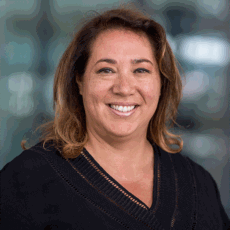Demoplatform for CBL projects
Summary of the project
The project has been focusing on developing a project documentation platform intended for showcasing student projects, especially those from Challenge Based Learning (CBL) courses at TU/e. The need for this platform has emerged from the observation that students produce significant outcomes in their projects, and there has been a growing interest in utilizing these outcomes across various courses and departments. The existing ID Demo platform, used by the Industrial Design department, has provided a preliminary model, but it has required several enhancements to meet the broader needs of TU/e. The platform has been undergoing several modifications to address its current limitations. Key improvements have included adding features to ensure the platform is always accessible to external parties, enhancing the search functionality with tags, implementing a library function for past projects, and including a help button. Additionally, the platform has been updated to request student consent for using footage, accommodate multi-user functionality, and introduce processor agreements. Optional features like zooming on posters and uploading high-resolution pictures have also been considered. This platform has been envisioned to serve as a modular tool, supporting online demonstrations and project documentation while integrating seamlessly with TU/e’s infrastructure. It has been implemented in CBL Courses linked to innovation Space, and subsequent presentations and adjustments we made based on feedback from various departments.
Aim of the Project
The project has been aimed at creating a versatile and user-friendly platform for documenting and showcasing student projects. The platform has been designed to facilitate online presentations, act as a comprehensive library for past projects, and offer a cohesive documentation tool for future use. It has been intended to support hands-on, CBL education, and to enhance the visibility of student work. By aligning with the CBL program and integrating feedback from various stakeholders, the project has aimed to establish a robust system that not only showcases student achievements but also provides valuable resources for future projects. The platform has been set to create coherence within project documentation, facilitate the archiving of historical data, and align with TU/e’s educational objectives and infrastructure.
Results and learnings
After implementing and using the platform the conclusion is that the overall experiences were very positive. The platform provided a clear and attractive overview of the projects being done. For future use, the platform needed to be rebuilt to function well and to meet the safety regulations. All parties involved; ESOE, ID, Honors and innovation Space were supporting a continuation of this project. Other departments like Build Environment showed interest in using the platform.
After testing the pilot platform, innovation Space has now collaborated with the Industrial Design department again, where Mathias Funk developed a data foundry platform that replaced the old Demo platform. This new platform contains the same features and has been used within several CBL-courses linked to innovation Space and Honors Academy. The content from the old platform has been moved to the data foundry, so all data is still visible.
Advise for a future continuation of the platform is to focus on the search-function within the platform, using correct tags.
